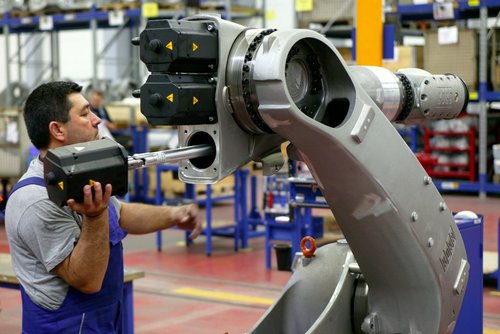How does the EU Commission’s idea of closer scrutiny of Chinese investments into European companies square with the same Commission’s advocacy in favour of open markets and free movement of capital? It is a delicate balance to strike between intervention and free markets. The EU needs to be careful not to lose credibility and scare away foreign investors which could endanger the many advantages of inflowing foreign direct investment.

Chinese take-overs in Europe
At the same time, there are unequal access and investment opportunities in China and the EU. Chinese requirements of linking investments into important Chinese sectors to setting up Joint Ventures and thus providing insight into key technological know-how are a case in point. While in the EU there is largely free movement of capital, the access of foreign firms to the Chinese market is limited. OECD numbers for a set of more than 60 countries show that the conditions for foreign investors in China are among the worst. The country also regularly faces accusations of market distortions, especially when public Chinese companies are concerned. In addition, one cannot rule out indirect control and subsidisation of the acquisitions in Europe by the Chinese government.
From an economic perspective, another argument needs careful consideration, too: the transfer of cutting-edge technologies that might go along with the take-overs could lead, in the longer-term, to welfare losses in Europe. As was pointed out by Nobel price-winning economist Paul Samuelson some years ago, rapid technological transfer towards a large emerging market that is catching up to a technologically advanced country can be to the disadvantage of the latter. A case in point appears to be the take-over of German avant-garde robotics company Kuka by China’s household goods producer Midea, which provides Midea with cutting-edge robotics technology knowledge. It is not clear whether the conditions for welfare losses do apply to Europe today. However, the combination of China’s immense economic size, its very rapid technological catch-up fostered by involuntary technology transfers and the slowed-down productivity and innovation growth in Europe, justify concerns that should not be ignored.
More regulatory oversight is thus needed in order to scrutinise this issue. The Commission’s proposal for better screenings and insight of take-overs by foreign companies are going in the right direction. On top of that, targeted strategies and safeguards for relevant sectors should be developed only, if the concerns about an overly rapid technology transfer prove to be well-founded. However, new instruments would need to comply with WTO rules and should be applied only restrictively, because such targeted intervention must not open the door to a broad-scale protectionism vis-à-vis China. The wide variety of important advantages of globalisation needs to be preserved. In addition, European economic policies need to better tackle globalisation’s challenges. They should incentivise innovation and adaptation capabilities for the ongoing structural change we are witnessing today and better care for potential losers.
A report by IW Cologne looks at the necessary conditions and possible paths of action for the EU and European governments.
Not so Different?: Dependency of the German and Italian Industry on China Intermediate Inputs
On average the German and Italian industry display a very similar intermediate input dependence on China, whether accounting for domestic inputs or not.
IW
Schwächelnde Wirtschaft: Wo steht die EU im Vergleich?
Ungefähr eine Million Industriearbeitsplätze sind laut einer Studie des Europäischen Gewerkschaftsbunds in der EU in den vergangenen vier Jahren verloren gegangen. Die EU-Staats- und Regierungschefs wollen heute auf dem EU-Gipfel besprechen, wie sie die ...
IW